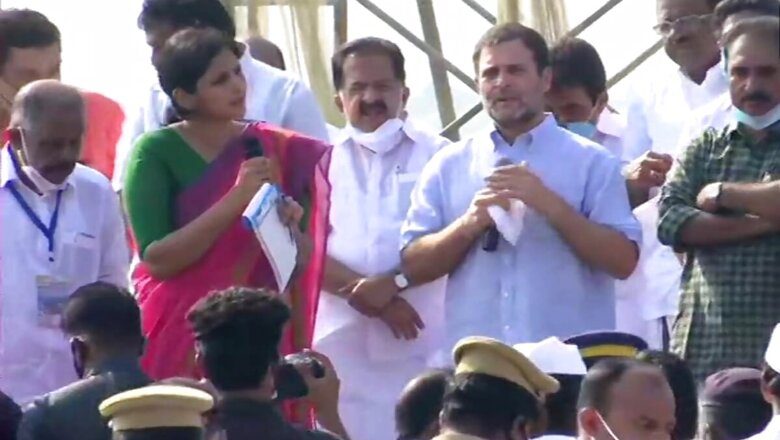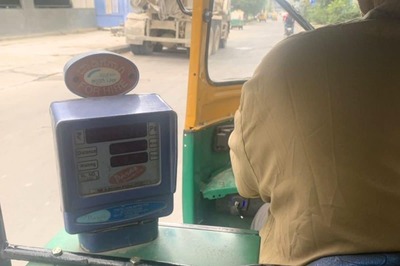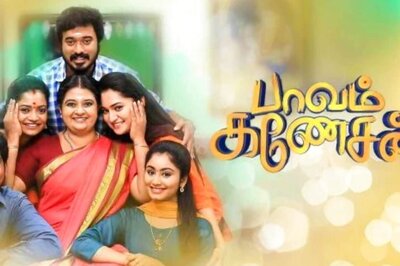
views
Congress leader Rahul Gandhi’s series of remarks that the country’s “fisherfolk need independent ministry” invited strong reactions from central ministers. While Union Fisheries Minister Giriraj Singh said, “the new ministry was established by Modiji on May 31 2019,” Prime Minister Narendra Modi said he was “absolutely shocked” by the Congress leader’s statement. Later, Gandhi clarified in a tweet that “fisherfolk need an independent and dedicated ministry of fisheries, not just a department within a ministry.”
It is not the first time that Gandhi has pitched for an independent fisheries ministry. Ahead of the 2017 Assembly election in Gujarat, the Congress leader had promised creation of a separate ministry for fisheries if the party was voted to power at the Centre.
Welfare of the fishing community and a separate fisheries ministry have been for long on the agenda of the BJP as well. In run-up to the 2014 Lok Sabha election, the BJP has promised the same in Tamil Nadu. The party’s 2014 Lok Sabha poll manifesto has said “measures would be taken for the welfare of fisherman,” if the party came to power at the Centre.
In his interim budget speech in 2019, the then Union finance minister Piyush Goyal had announced creation of a “separate Department of Fisheries”. At a poll rally in Mangaluru on April 13, 2019, Modi had announced creation of a separate ministry for fisheries after election results. In May that year, a separate Department of Fisheries was created under the Ministry of Fisheries, Animal Husbandry & Dairying.
While many called Gandhi’s “separate fisheries ministry” statement a gaffe, a mistake, others who follow the Congress, especially Gandhi’s politics closely, say his repeated assertions were intentionally designed to target the fishing community votes, especially in the poll-bound states.
“No doubt, Rahul Gandhi’s statement was meant to target the fishing community,” say Chennai-based political commentator Sumanth C. Raman.
Kerala, Tamil Nadu, West Bengal and Puducherry that are going to polls in March and April are maritime states/ UT with a sizeable population engaged in fishing. According to data by department of fisheries, around 1.61 crore people across the country are involved in fisheries activities.
Kerala alone has around 10.5 lakh people spread across 335 fishing villages, according to a state government data for 2019-20. The Fisheries Union says the number is much higher. The state has a 590-km coastline with nine of its 14 districts facing the sea. Besides, the Communist-ruled state has 44 big and small rivers, a rich source of inlands fishing.
Tamil Nadu has a 1,076km-long coast overlooking the pristine Coromandel of the Bay of Bengal with 11.9 lakh fisherfolk population. West Bengal has 22.45 lakh people engaged in the fisheries activities, directly or indirectly, while the Union Territory of Puducherry has 30,000 fishermen. Together, these three states and UT produce around 25% of country’s fish.
In Kerala, fisherfolk belong to three different religions – Hinduism, Islam and Christianity. Based on their religion, they have remained politically active under the umbrella of trade unions and their respective religious institutions.
“In Kerala, churches and caste-based organisations are very influential in the fishing community,” said BRP Bhaskar, a veteran journalist and social activist. “A large section of the community was with the Congress-led UDF in the two-front system in Kerala,” Bhaskar said, adding, “However, it’s not that anybody has monopoly over them.”
He agreed with the theory that voting preferences among the fisherfolk depend on the religion they follow. “It is correct so far as I can see it. That kind of thing you can read from past electoral research,” Bhaskar said.
According to political watchers, the Christian fisherfolk in Kerala tend to vote for the, UDF while Hindus prefer the CPM-led LDF.
Analysts says the state’s fishing community was up in arms against the Pinarayi Vijayan government’s deep sea exploratory agreements with an American firm. The Congress, sensing an electoral opportunity, jumped into the issue siding with the fisherfolk. Under pressure, the government cancelled the contract.
In neighbouring Tamil Nadu, the fishing community is electorally influential in 15 of its 39 Lok Sabha seats. The state has 38 Assembly segments with coastal voters, according to a report.
“The fishing community is predominantly organised in two-three places across Tamil Nadu, including Kanyakumari, Rameswaram, in and around Chennai and to some extent in Nagapattinam,” said Sumanth C Raman. “The community has been voting predominantly for the DMK, especially the Christian fisherfolk,” he said.
“In Tamil Nadu too, like Kerala, churches in the coastal villages play a vital role in bringing the fishing community together. In the state’s deep south, the Congress and DMK have pockets of influence among the community,” Raman said. “In some areas, the AIADMK enjoys their support mainly due to fisheries minister D Jayakumar, who hails from the community,” Raman said.
Read all the Latest News, Breaking News and Afghanistan News here


















Comments
0 comment